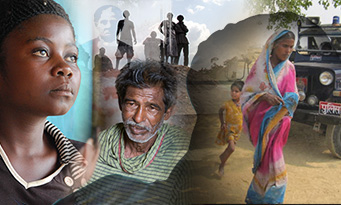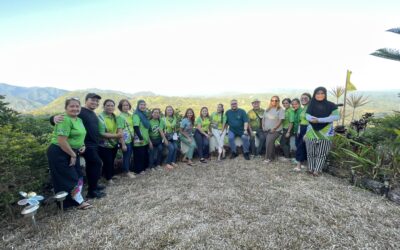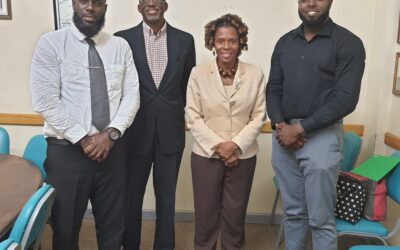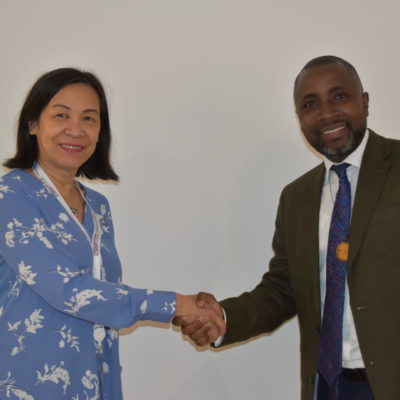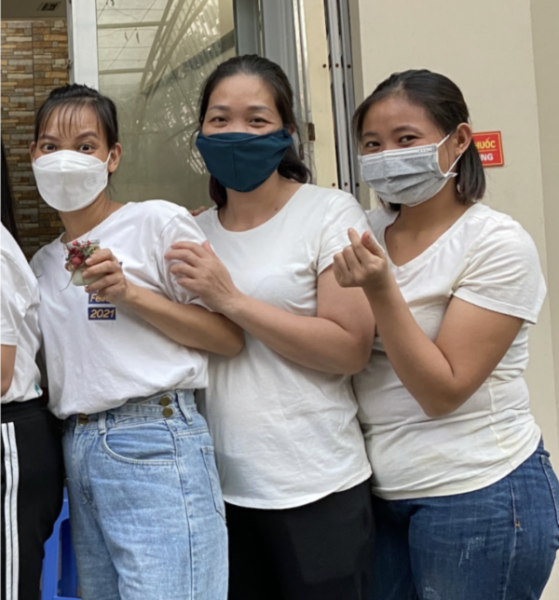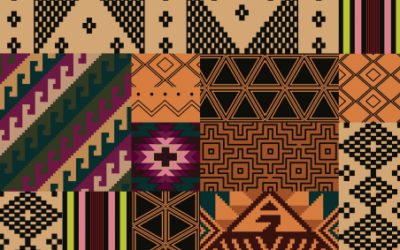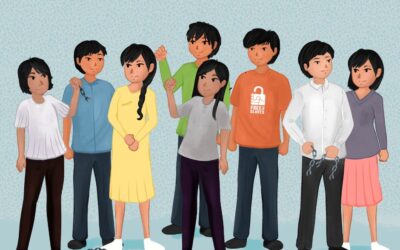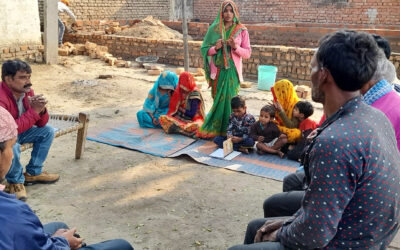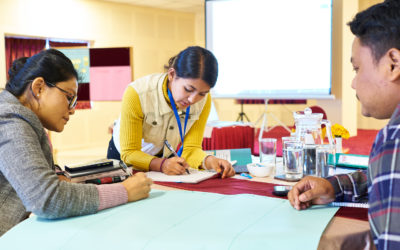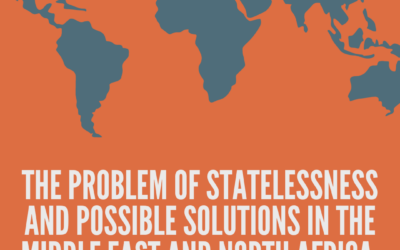Blog
Empowering Barangay Culiat to Combat Child Labor in the Philippines
Empowering Barangay Culiat to Combat Child Labor in the Philippines Modern slavery is an insidious reality that continues to affect millions worldwide, manifesting through forced labor, human trafficking, and the exploitation of children. In the Philippines, these...
Notes from the Field – Adrian Alexander – Human Trafficking in the Caribbean
Adrian Alexander, Free the Slaves Advocacy and Movement Building Country Manager in Trinidad and Tobago shares his recent experiences advancing relationships across the Caribbean Region.
Empowering Partnerships: Free the Slaves Impact in East and Central Africa
In the fight against modern slavery, collaboration is paramount. Nowhere is this more evident than in the efforts of Free the Slaves in East and Central Africa, where partnerships between civil society organizations and the government are paving the way for impactful...
Get Involved
Free the Slaves Partners with Three New Organizations in Vietnam
Free the Slaves is excited to announce our new partnerships in Vietnam. These partnerships will allow us to understand more about the country and its need to have more players in the human trafficking space. These partnership endeavors are essential for developing...
Free the Slaves Partners with Three Filipino Organizations
Free the Slaves is excited to announce new partnerships with local organizations in the Philippines. These partnerships will allow us better to understand the context of slavery in the Philippines and strengthen our efforts to combat it. We partner with the Balaod...
I still have hope in my 50’s
Last year Free The Slaves joined HopeBox, an NGO based in Vietnam, to serve survivors of domestic abuse and slavery. While working in the city of Hanoi, Free The Slaves and Hope Box had the privilege of meeting Tina*. This is Tina’s story of overcoming fear and...
Our Work
Between Neglect and Exploitation: Modern Slavery in Peru
A recent study on modern slavery in Peru conducted by Free the Slaves and ONOTZI in the Peruvian Amazon’s regions of Ucayali and Huánuco uncovers the harsh realities of four Indigenous communities.
Leading Change in Cambodia: Free the Slaves Leads Anti-Slavery Training
Free the Slaves (FTS) continues empowering grassroots organizations around the world with its innovative Community Liberation Toolkit (CLT). FTS has expanded its horizons by diving into the core of Southeast Asia with the Chab Dai Coalition in a remarkable stride. ...
Reducing Exploitation of Migrant Workers Through Community Mobilization
Free the Slaves Community Liberation Initiative, in collaboration with local and international partners, is actively reducing the exploitation of migrant workers in target communities in India.
News
How FTS Supports Survivors in Coping with COVID-19 Lockdowns in Vietnam
Free the Slaves has recently partnered with HopeBox, a social enterprise in Hanoi, Vietnam that operates on a mission to empower women who are victims of abuse and modern slavery. With a shared mission to empower survivors of modern slavery in Vietnam, FTS is...
Preparing Indians for Safe Post-Pandemic Migration
Migrating for work has always been a risk. Unscrupulous traffickers posing as legitimate labor recruiters trick millions of people into chasing a dream of well-paid jobs. But too often, what awaits them is exploitation and misery. As travel restrictions ease around...
FTS Distributes Humanitarian Aid in India as COVID-19 Crisis Deepens
The second wave of the deadly coronavirus is wreaking havoc in rural areas of India. The rural population is facing severe economic distress due to lockdowns and the pandemic. Free the Slaves and our partners in India are organizing several drives in affected rural...
Americas
Stand Against Anti-Haitian Racism
For more than 150 years Haiti and the Dominican Republic have shared the island of Hispaniola. Their relationship, however, has not been pleasant. Sadly, this antagonism has led to the creation of racially biased policies against Haitians in the Dominican territory. ...
Haiti Government Pledges Financial Support to Fight Child Trafficking
Haiti’s National Committee to Combat Trafficking in Persons will have the financial capacity to carry out its ambitious agenda, thanks to a commitment by the government to provide 20 million Haitian gourdes (about $185,000 USD) in financial support. It’s the first...
Situation Update: Dominican Republic
The COVID-19 state of emergency and curfew continues in the Dominican Republic as the contagion spreads. Hospitals are full. Government aid has not reached impoverished communities where Free the Slaves works because of discrimination toward residents of Haitian...
Asia
Alliance 8.7 and Accountability Framework Webinar Report
Alliance 8.7 and Accountability Framework Webinar Report On 15 June 2023, Free the Slaves and the Alliance 8.7 secretariat in Nepal hosted a webinar to increase awareness of Alliance 8.7, the Pathfinder countries, and the accountability framework. The target audience...
Reducing Exploitation of Migrant Workers Through Community Mobilization
Free the Slaves Community Liberation Initiative, in collaboration with local and international partners, is actively reducing the exploitation of migrant workers in target communities in India.
Training Organizations to Mobilize Communities in Nepal
Free the Slaves and Read Nepal organize Community Liberation Training in Kathmandu, Nepal.
Africa
The Problem of Statelessness and Possible Solutions in the Middle East and North Africa
An urgent and all-encompassing human rights crisis exists in the MENA region regarding the condition of people who do not have the backing of a government, also known as stateless individuals. These people face a multitude of obstacles that diminish their quality of...
Empowering Media to Shine a Light on the Fight Against Sexual Exploitation in Kédougou
A two-day media capacity building workshop was held on December 4th and 5th, 2023, in Kédougou, where 20 journalists from various media houses came together to deepen their understanding and reporting skills on a grave issue affecting the region, which is the...
Tackling Modern Slavery through Knowledge
Free the Slaves (FTS), in its unwavering commitment to eradicate modern slavery, recently conducted a transformative two-day training session in partnership with ALCD, generously supported by the National Endowment for Democracy. Held on August 25-26, 2023, the event...

